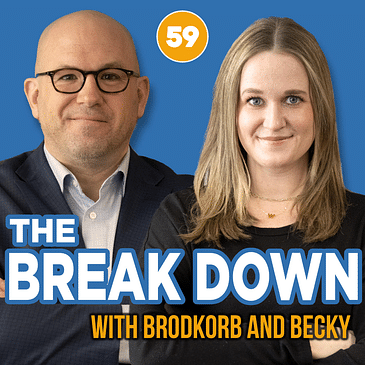On this episode of The Break Down with Brodkorb and Becky, Michael Brodkorb and Becky Scherr break down the following:
- 00:01:06 - An interview with DFL Senator Grant Hauschild about civility in politics.
- 00:27:15 - Recap of the interview with Hauschild
- 00:31:10 - An interview with Shannon Watson, executive director and founder of Majority in the Middle.
The Break Down with Brodkorb and Becky will return with a new episode next week.




